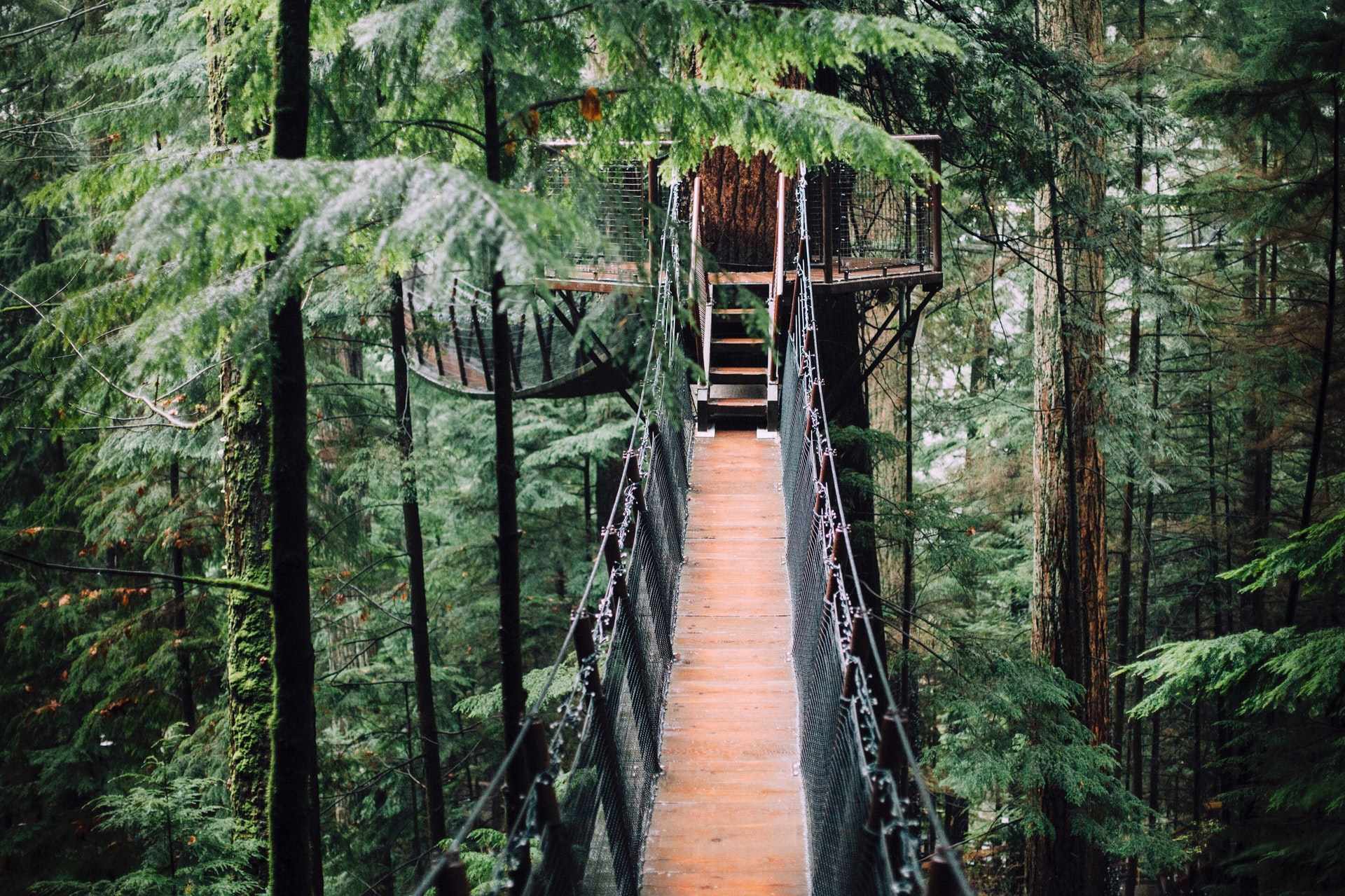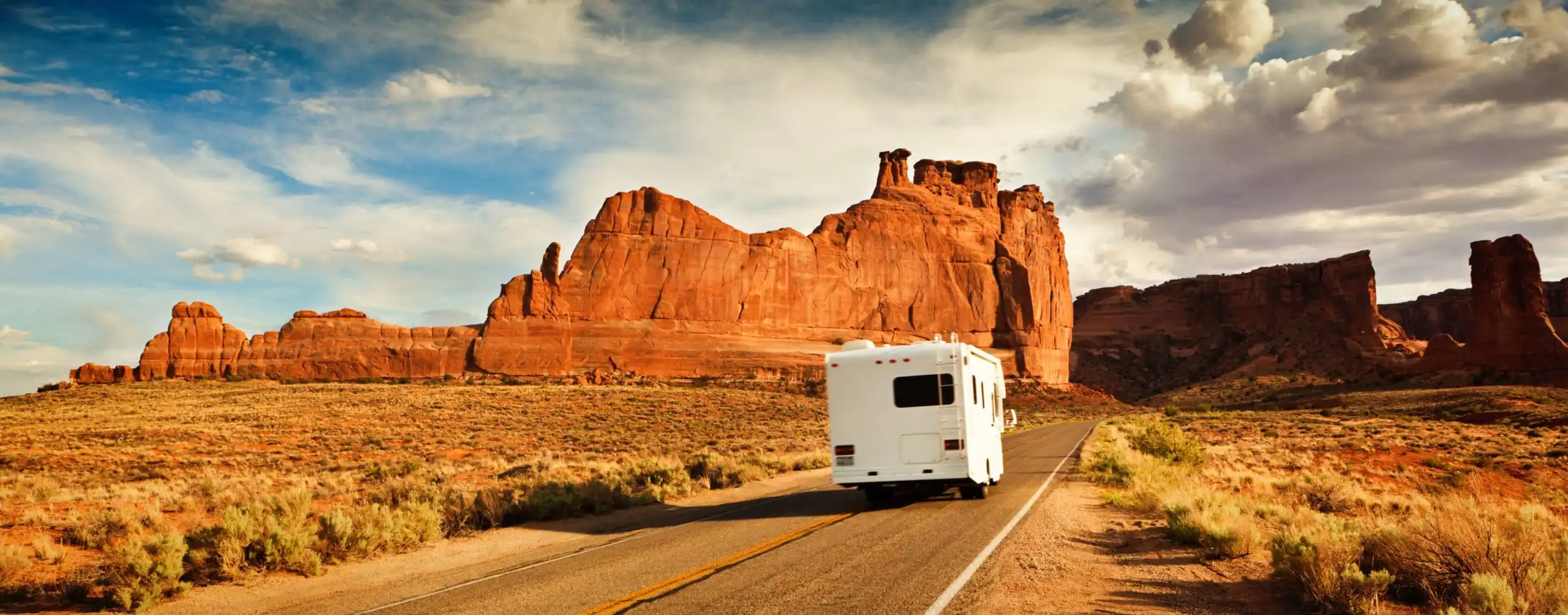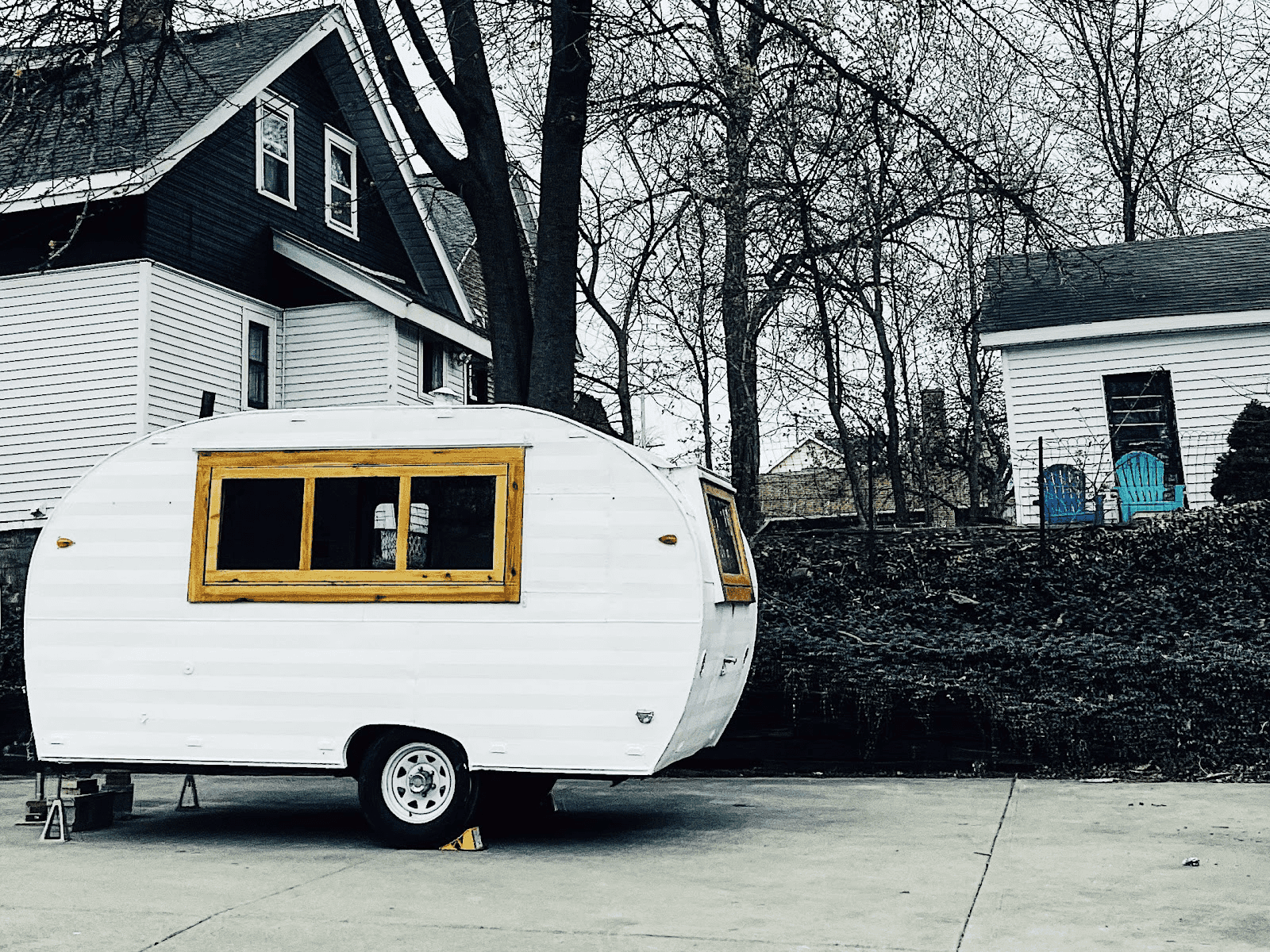This year might go down as the longest and craziest year in history. As much as any of us would like to see 2020 in our rearview mirrors, we still have four and a half months left before we can wave goodbye. The last part of the year is typically exciting. It’s the time of year for falling leaves, football, fall vacations, and family fun. If a family-fun vacation is what you need to reclaim 2020, try something different from what you’ve tried before. Wherever you want to go, it’s essential for you to feel comfortable with your accommodations. With a little uncertainty still lingering, weigh your options; when it comes to RVs vs. hotels, should you book a driveway instead of a hotel room?
The Year of the Road Trip
You don’t need to own an RV to plan an RV road trip, and you don’t need to stay in a campground to have a real RVing experience. Travel has changed dramatically since the outbreak of the coronavirus, and RVs are a safe option for people who still want to have a vacation. Social distancing remains a top priority for people across the country, and the nature of RV travel helps people maintain social distance. If you like the idea of a driving vacation, but you aren’t sure whether you want to drive your car, stay in a hotel, or rent an RV for all or some of your vacation, you aren’t alone. Instead of listing the pros and cons, we’ve listed some of the things you should consider when deciding between an RV or a hotel since some of the reasons for choosing one accommodation over another are preferential and not necessarily a negative or a positive.
RVs vs. Hotels
Booking an RV for Your Next Vacation
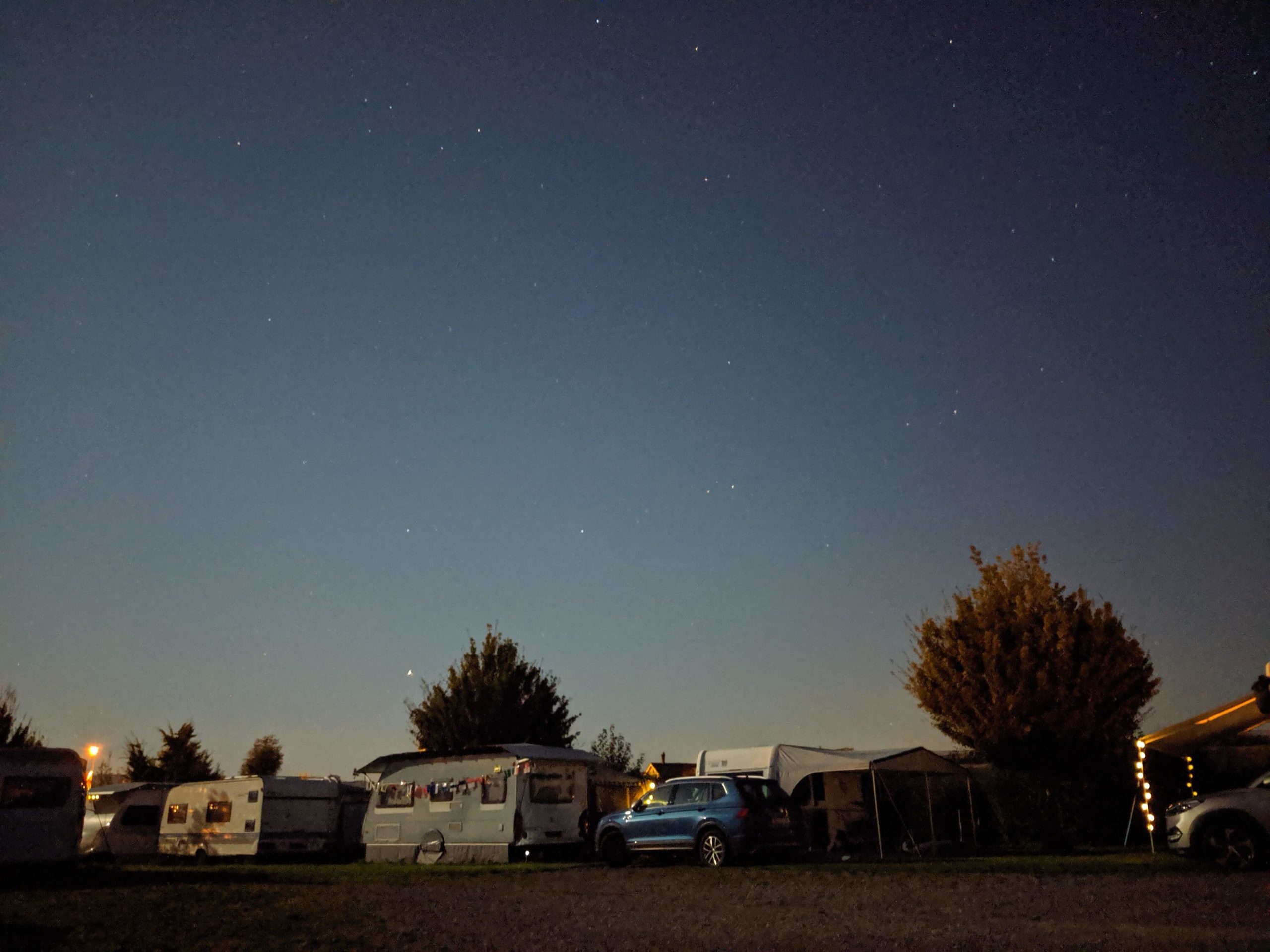
If you own an RV or borrow an RV from a friend, you won’t need help deciding which RV to use during your vacation. If you rent an RV, you have a little more flexibility to choose the rig that best meets your needs. Peer-to-peer RV rental is fun and easy, and in some cases, booking an RV is as easy as booking a hotel.
Cost
- RV rentals typically charge a daily or weekly rate regardless if there are eight occupants or two occupants on board.
- When you rent an RV, it’s important to be mindful of weight limitations. Use the rental page’s posting to determine how many people the RV sleeps, and then account for body weight and anticipated luggage weight.
- When calculating cost, don’t forget to factor in the fuel price. A quick web search will help you determine average miles per gallon for a vehicle similar to the one you hope to rent.
- If you use propane, you might have to fill your tanks to use propane heat or a propane stove during your vacation.
- Book a driveway for your next vacation! RVers who have family or friends with adequate driveway space can potentially offer you free-overnight accommodations. Moochdocking, or free camping, courtesy of family, or friends, is a big thing in the RV world!
- RVers have several options for overnight stays en-route to their destination. Choosing overnight casino parking, dry campgrounds, boondock locations, and free overnight parking areas instead of camping at more expensive RV parks can help save you money.
Pets
- People who rent their RVs can find pet-friendly-rental options, so it’s possible to bring along your dog for an additional, non-refundable cleaning fee.
- When traveling with pets, be aware of where you plan to park and visit. Not all parks or campgrounds permit you to leave your pet unattended, even inside of an RV.
Food
- Dinner breaks happen on your time since you can eat all of your meals inside of your RV. If you are hungry while driving through the middle of Kansas at night, it’s no problem!
- Meal preparation: prepare your meals ahead of time, so all you have to do is cook your food once you stop for the night. Cooking after a long day’s drive can be tiring.
- Since it’s possible to cook all of your meals on board, you don’t have to worry about expensive or overcrowded restaurants.
- People who have diet restrictions can easily pack food that adheres to their diet.
Other Things to Consider
- Self-contained RVs have restrooms onboard, so it’s possible to avoid all public restroom areas when you drive and stay in an RV.
- Driving an RV in wild weather is dangerous. Be mindful of seasonal weather conditions along your route.
- Some RV parks and campgrounds have seasonal closures or winterize their systems during the colder months of the year.
- Watch for below-freezing temperatures. Unless your rig has tank heaters or an all-season package, you will have to winterize some of the systems to prevent damage.
Booking a Hotel for Your Next Vacation
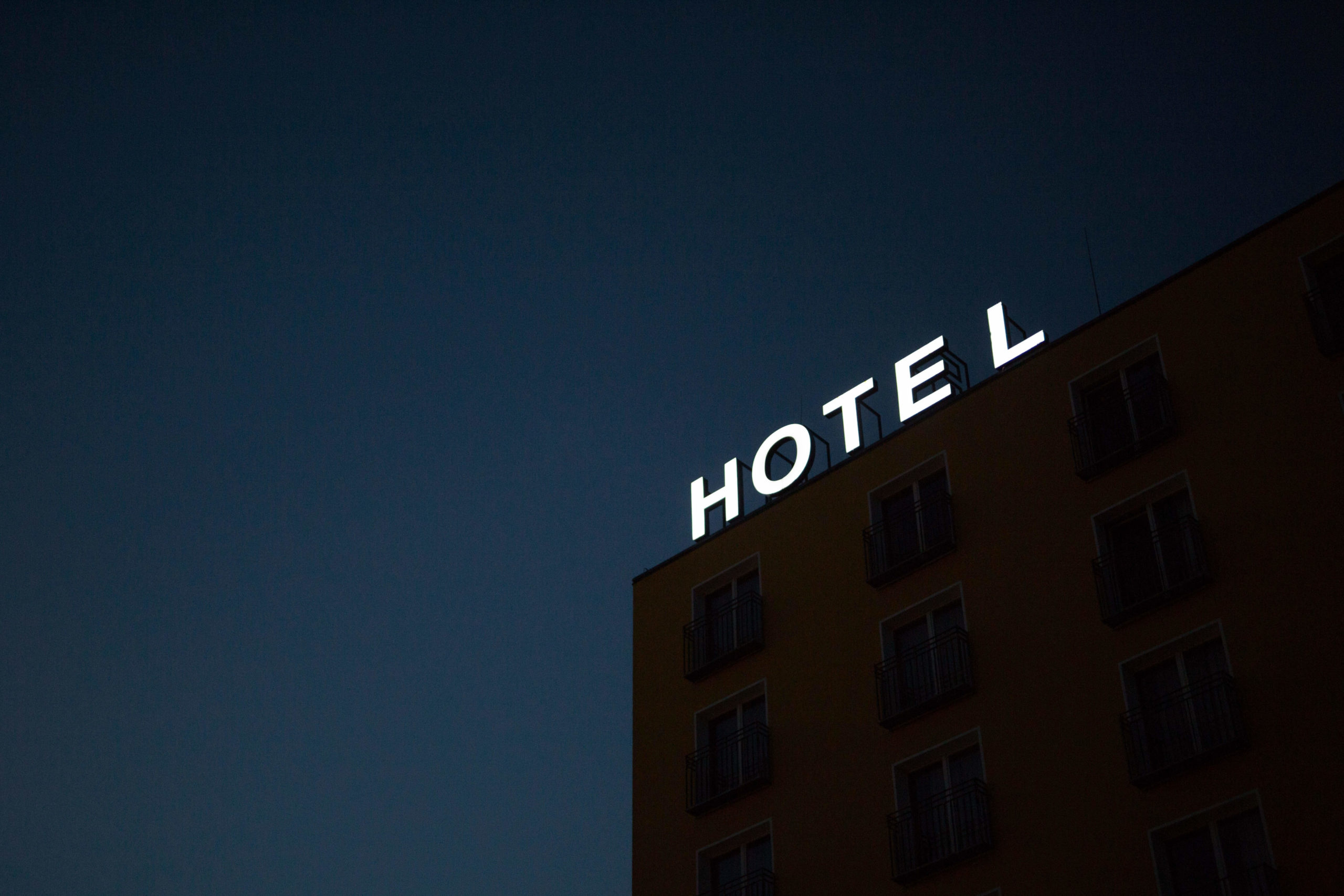
If you are ready to take a vacation, but you don’t want to hop on a plane yet, a safer and more social-distanced option is to drive. Driving provides people the opportunity to take a vacation while still avoiding large public spaces. Driving also gives families more travel flexibility. If driving and staying in a hotel is more your style, here are some things to consider when planning your next vacation.
Cost
- Hotels typically calculate their base rates on double occupancy and have restrictions on how many people can occupy a room.
- Most hotels calculate their prices according to the season and the demand for a room. Prices increase for holidays, sporting events, concerts, conventions, and around peak travel seasons.
- People traveling to destinations farther than a day’s drive should factor in the cost of hotel rooms, meals, and pet fees for each overnight stay en route to your destination.
- When calculating cost, don’t forget to factor in the fuel price. A quick web search will help you determine average miles per gallon for your vehicle.
Pets
- Pet-friendly hotels may charge a non-refundable pet-cleaning deposit, and many hotels also charge an additional per-pet fee each night.
- If you stay in a hotel, be prepared to take your pet with you wherever you go. If you can’t take your pet with you, be sure to research kennels nearby.
Food
- Hotel and off-site restaurants aren’t always open when you feel hungry.
- The cost of eating out can be expensive, especially for people with big families.
- People who have diet restrictions have to search for diet-friendly food options while on vacation.
- You increase your public interaction with each food and snack stop you make along your drive. Not all states have the same mask requirements, so while you might wear a mask in public, the people around you might not wear masks.
Other Things to Consider
- If weather might impact your road trip, have a back-up plan in case you need to stay in a hotel longer than expected.
- Rest areas remain closed in some states, so you may have to use gas stations, truck stops, or restaurant restrooms.
- Even though most hotels have increased cleaning measures, you might not feel comfortable allowing cleaning staff into your room.
- When you stay in a hotel, it’s impossible to avoid contact with other people.
If you still feel a little leery about flying, you aren’t alone. People are choosing to drive because they aren’t quite ready to embrace the pandemic’s definition of a new normal. The trend to book campgrounds and driveways, instead of hotels, looks like it will stick around for a while. When it comes to RVs vs. hotels, which accommodation will you choose?
